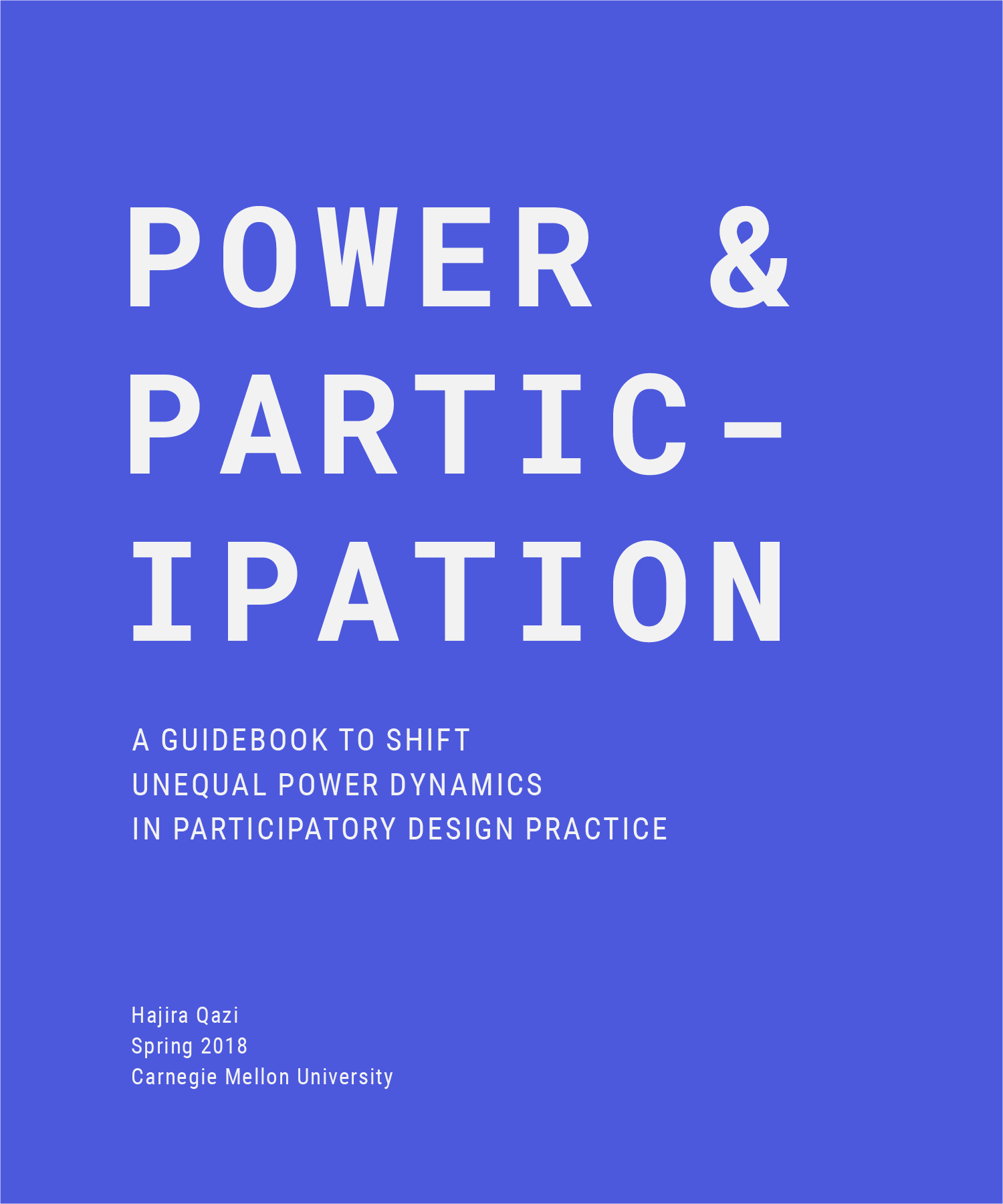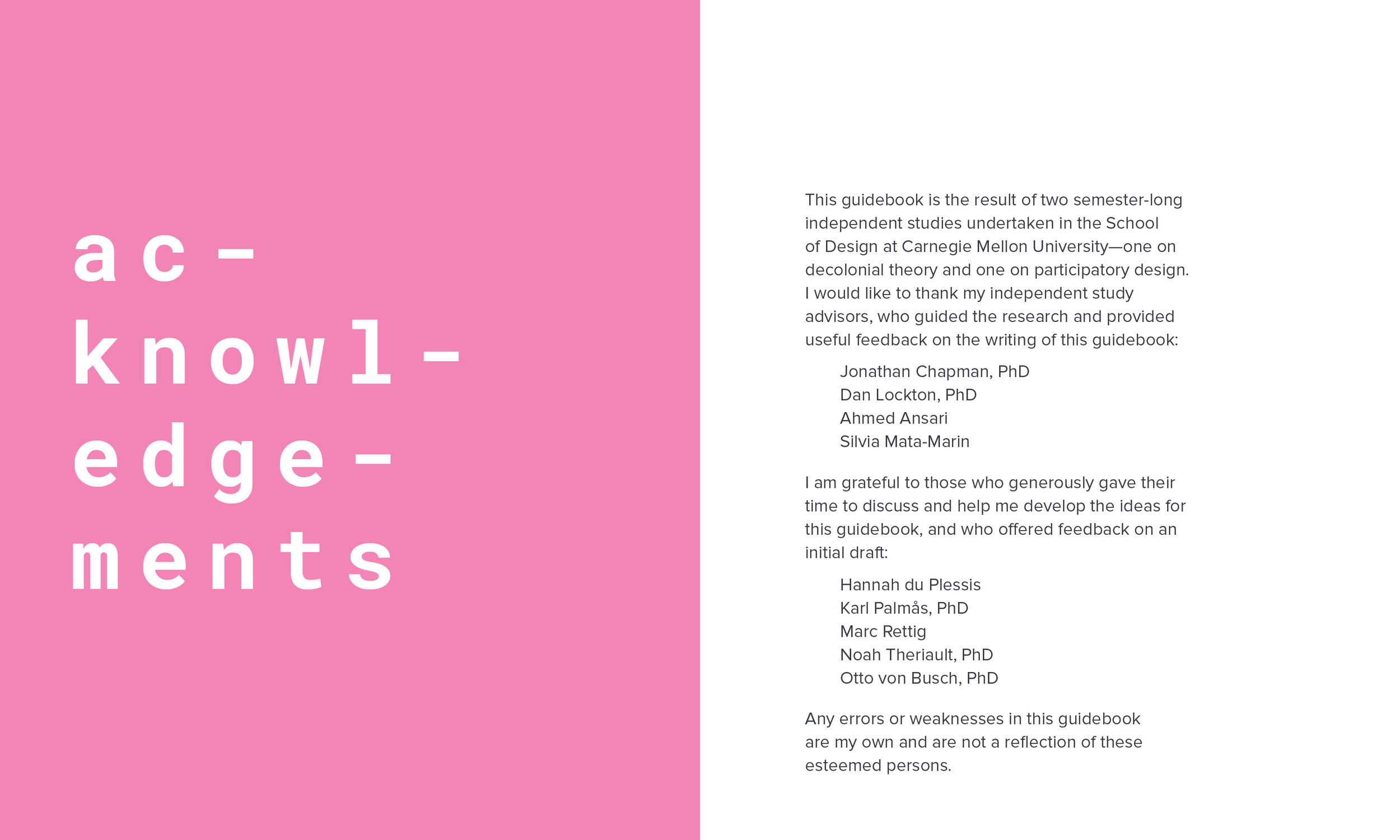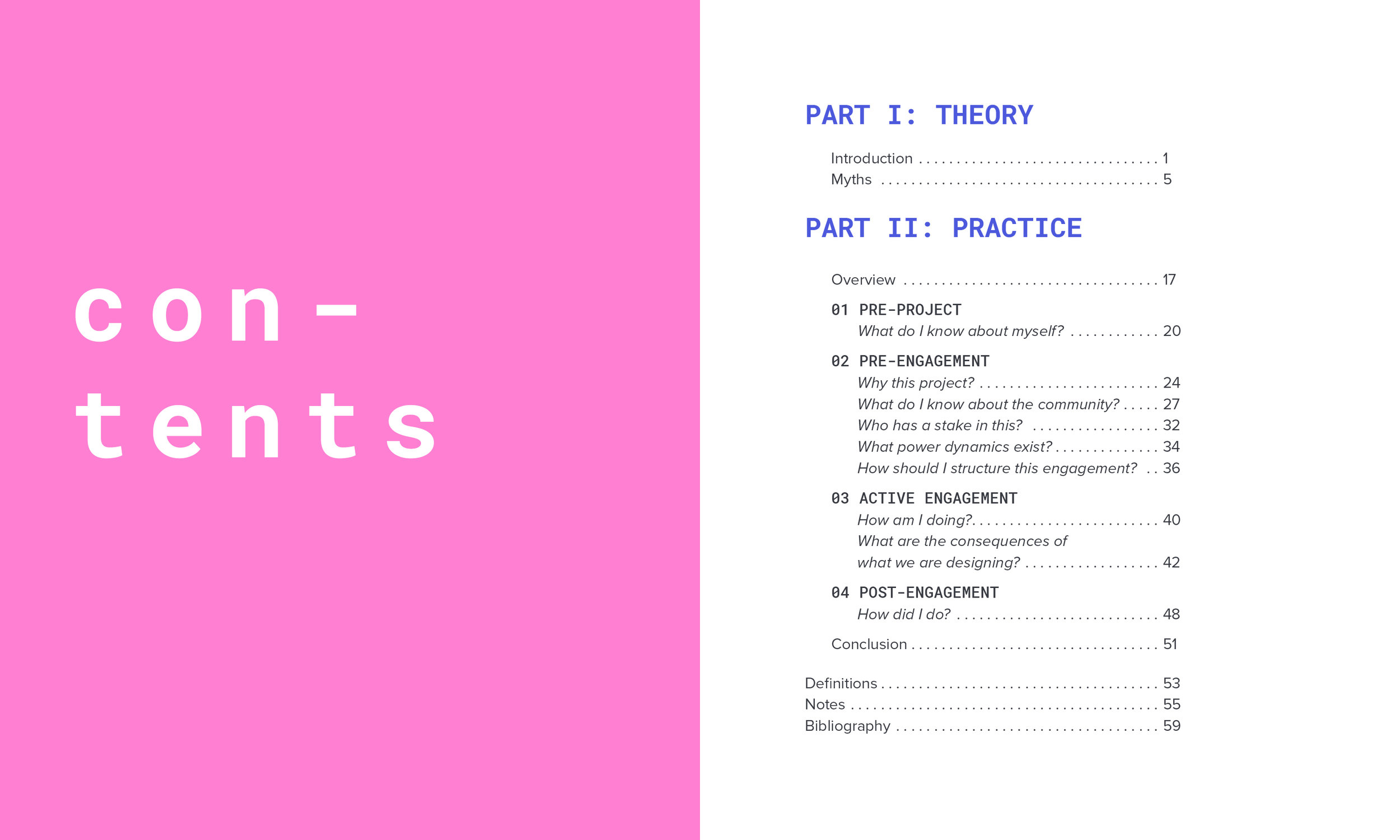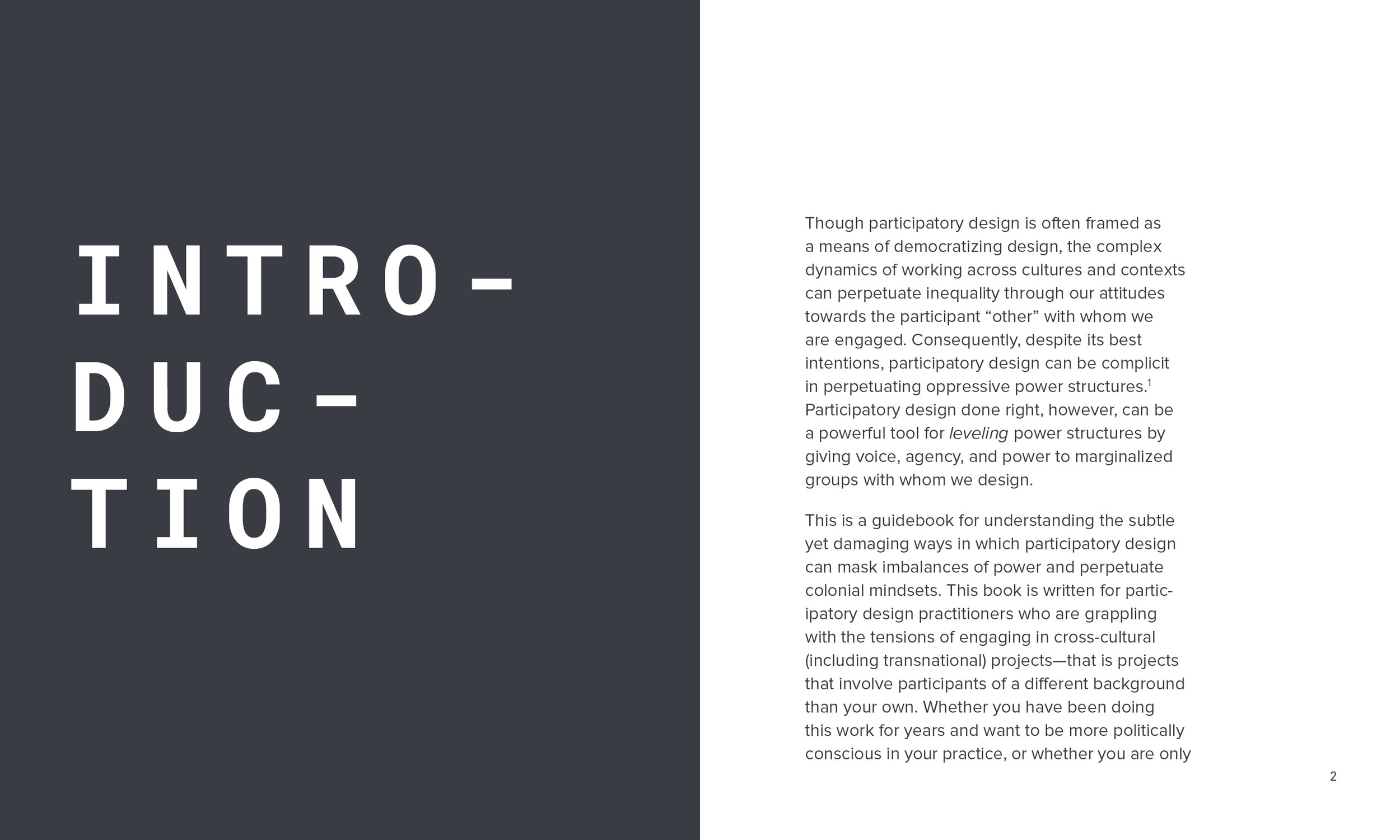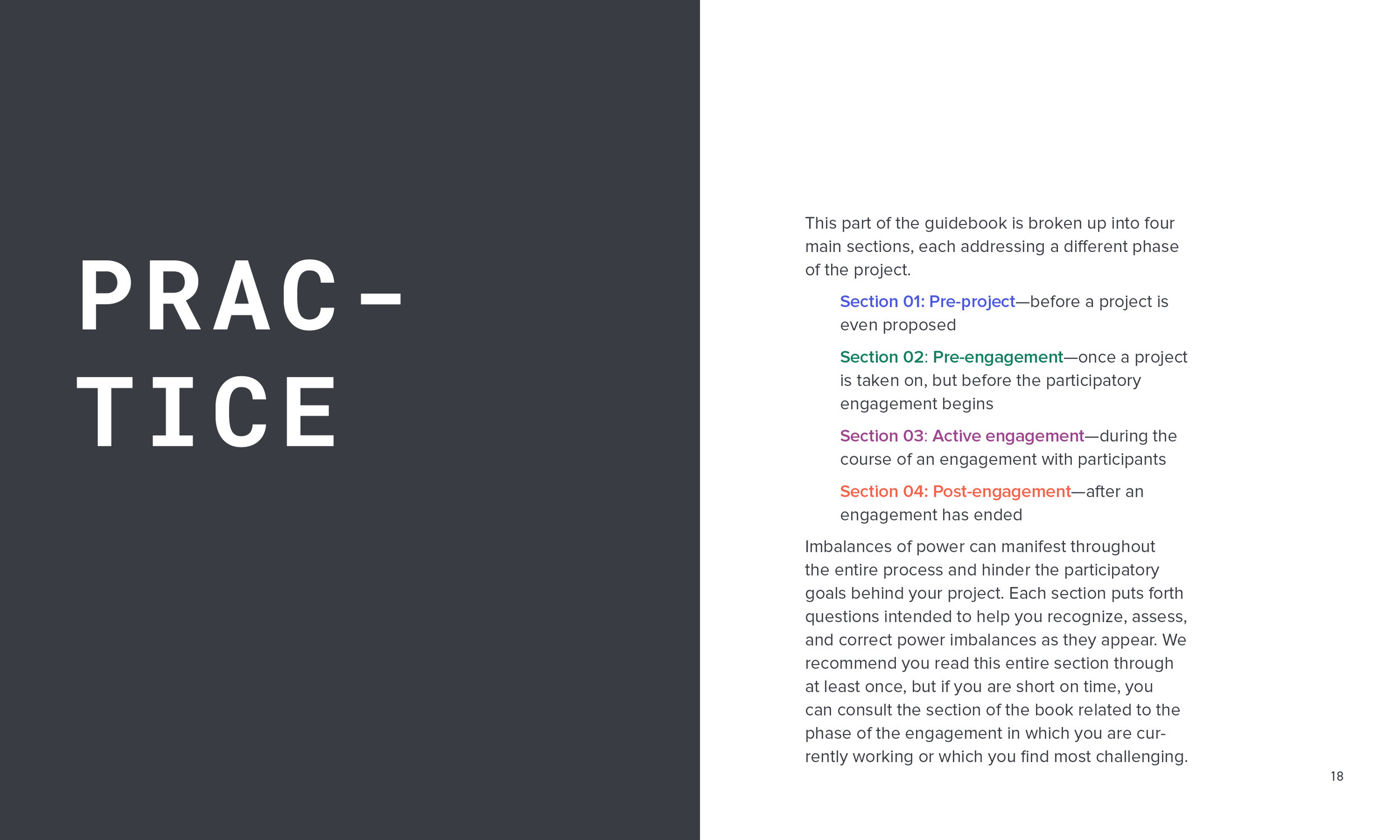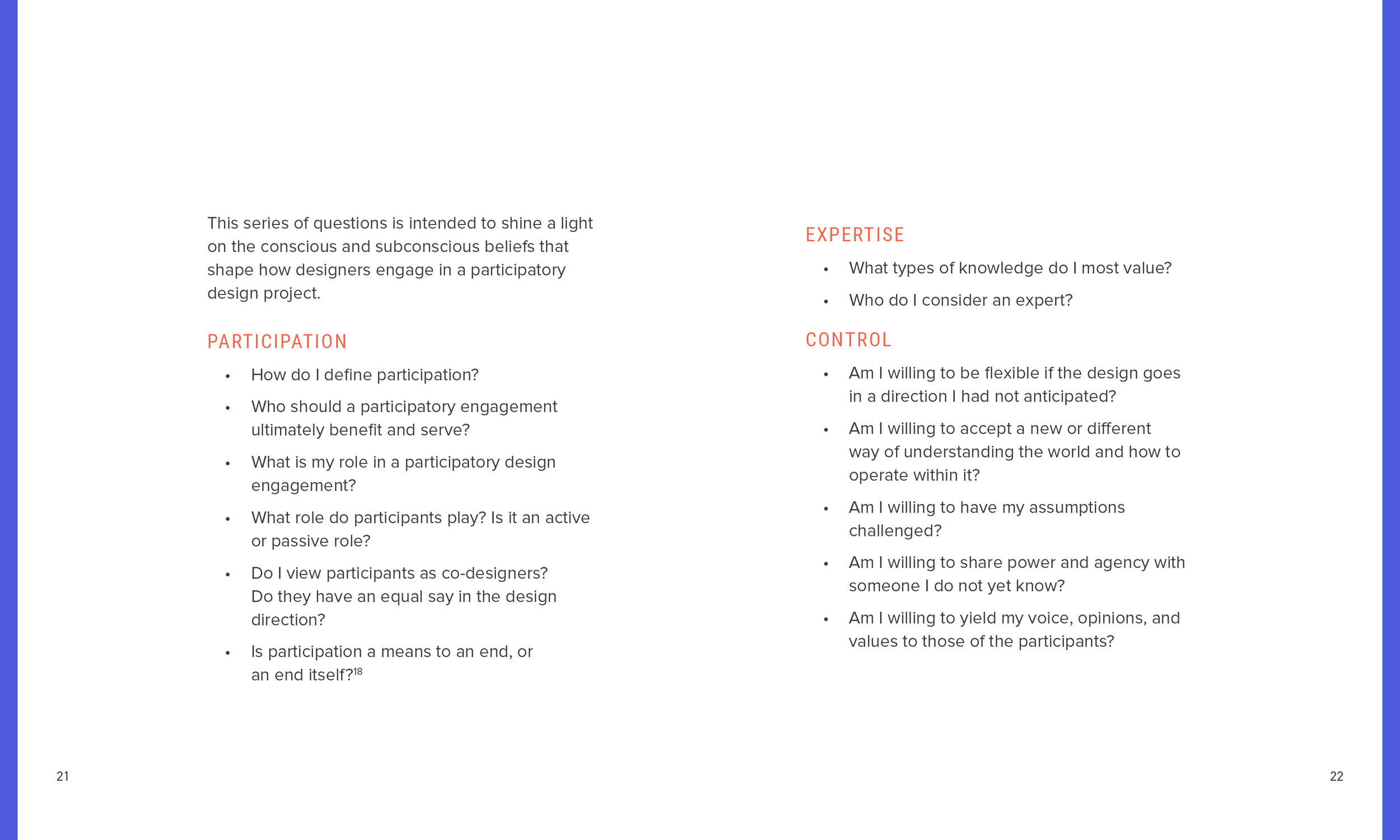INTRODUCTION
[Scroll to the end to preview pages and purchase a PDF download of the guidebook.]
This guidebook is the result of two semester-long independent studies undertaken in the School of Design at Carnegie Mellon University—one on decolonizing design and one on participatory design. I hadn’t intended the two topics to converge at all, but the more I learned about both, the more I saw how participatory design can be complicit in perpetuating colonial power structures, but also that there was a potential role for participatory design as a tool for leveling those power structures in design. Research into participatory design gave insight into issues such as voice, the meaning of participation, and decision-making. From decolonial theory, I learned about mindsets, epistemologies and ontologies, erasure of knowledge, self-actualization, and disruption of existing systems. Overlaps occurred in issues of power, exploitation, culture, and representation.
All of these ideas fed into the making of a guidebook for understanding the subtle yet damaging ways in which participatory design can mask imbalances of power. Though rooted in academic research, this book is written for participatory design practitioners who are grappling with the tensions of engaging in cross-cultural (including transnational) projects—that is, projects that involve participants of backgrounds different than their own. Whether they have been doing this work for years and want to be more politically conscious in their practice, or whether they are only beginning cross-cultural participatory design and want to better understand the complexities of the work, this guidebook is intended to help work through the issues that sideline the democratic values in which participatory design is rooted. Part I provides theoretical background and covers a series of myths about participatory design that perpetuate imbalances of power. Part II is the practice-based part of the book and prompts readers to think about different aspects of participatory design in a new way—before, during, and after the engagement.
Though a guidebook, the text does not intend to dictate answers, but puts forth questions that prompt reflection, challenge assumptions, and shift awareness towards a more equitable participatory design practice. Our goal is that the topics and questions covered in the book will spark conversations and inspire designers to think about and practice participatory design in a new way.
BRIEF:
Due to globalization and the internet, many of our design engagements are international in scope and reach. How can designers working in such cross-cultural contexts begin to engage in Participatory Design without reenacting colonial power dynamics? Write a guidebook that helps designers working in this space think through the deeper implications of what it means to design for the Other and with the Other, what they need to consider when engaged in such projects, and how they can create an equitable participatory environment that reverses instead of reinforces coloniality. Also consider how the guidebook will be presented—is it an ebook, in print, or an interactive app? Pay attention to the craft of the book as well.
SOLO PROJECT
TIMEFRAME:
6 weeks
COURSE:
Independent Studies on Decolonizing Design and Participatory Design
ADVISORS:
Jonathan Chapman
Dan Lockton
Ahmed Ansari
Silvia Mata-Marin
RECOGNITION
Featured as a Student Project at the Participatory Design Conference in 2018
TOOLS:
interviews / research / participatory design workshop / book binding / indesign
THE GUIDEBOOK
A PDF of the entire book is available for purchase here. Select pages from the book can be previewed below.
© Hajira Qazi, 2018. All rights reserved. No portion of this book may be reproduced in any form without permission from the author, except as permitted by U.S. copyright law. For permissions contact hmq@alumni.cmu.edu.
